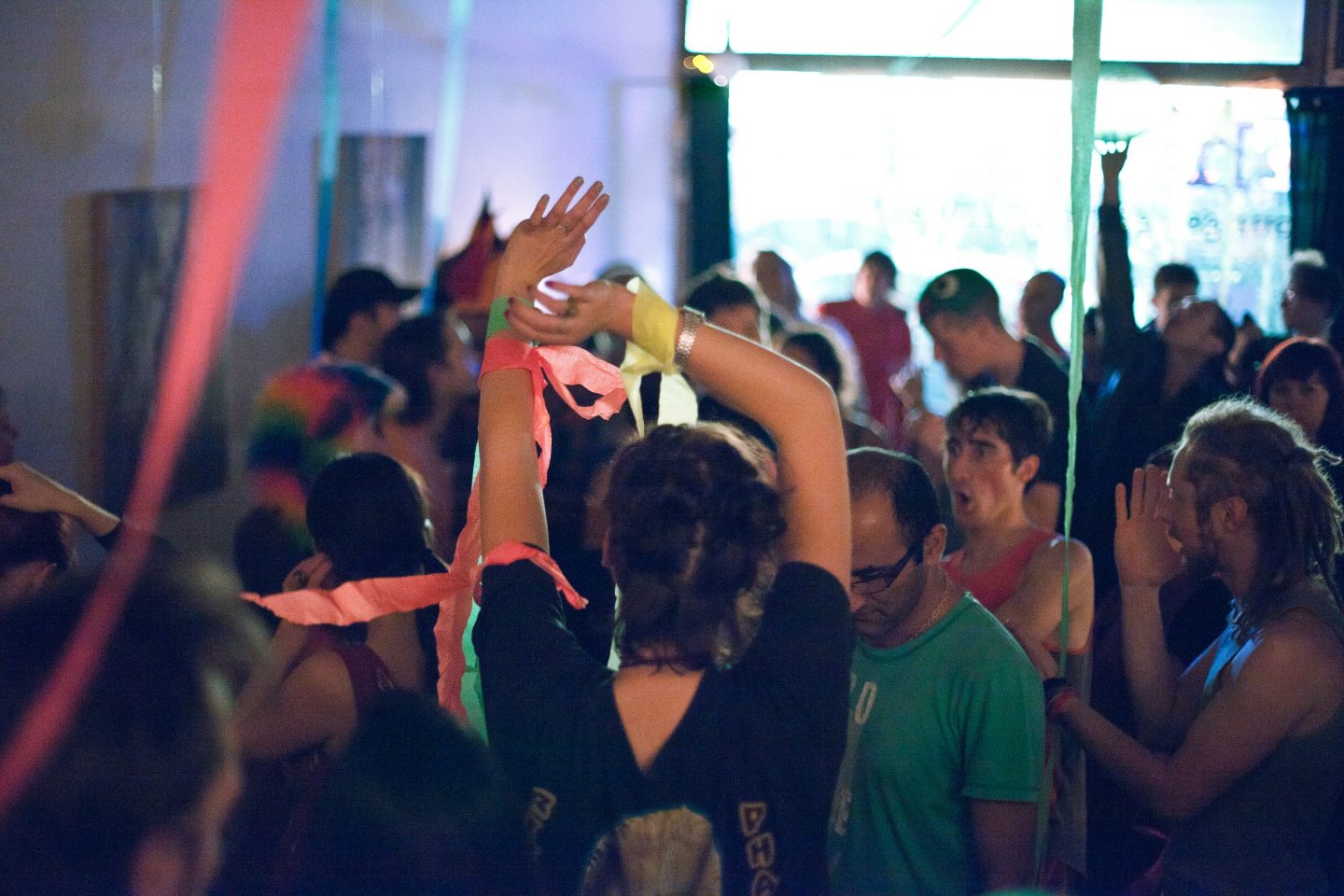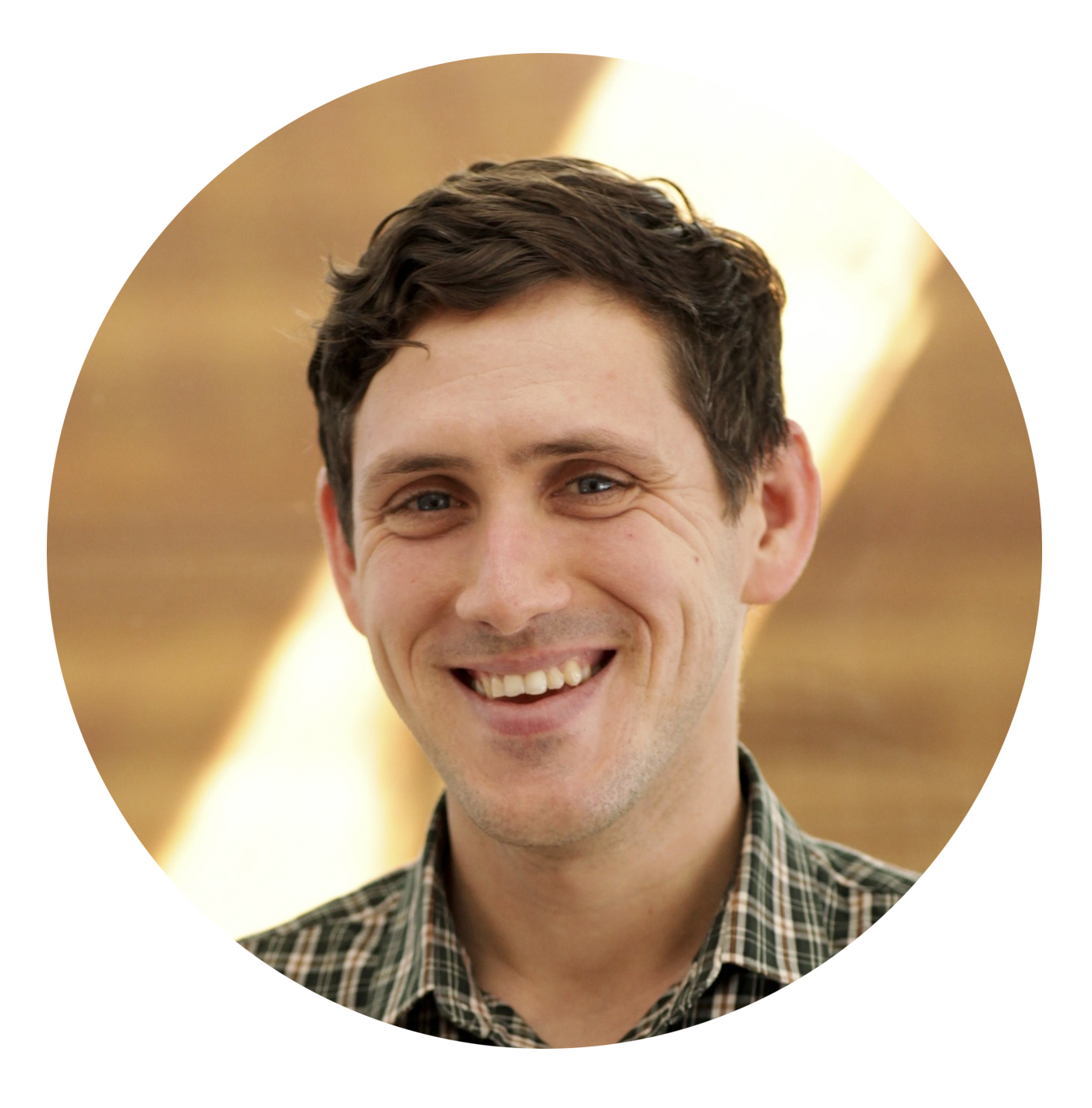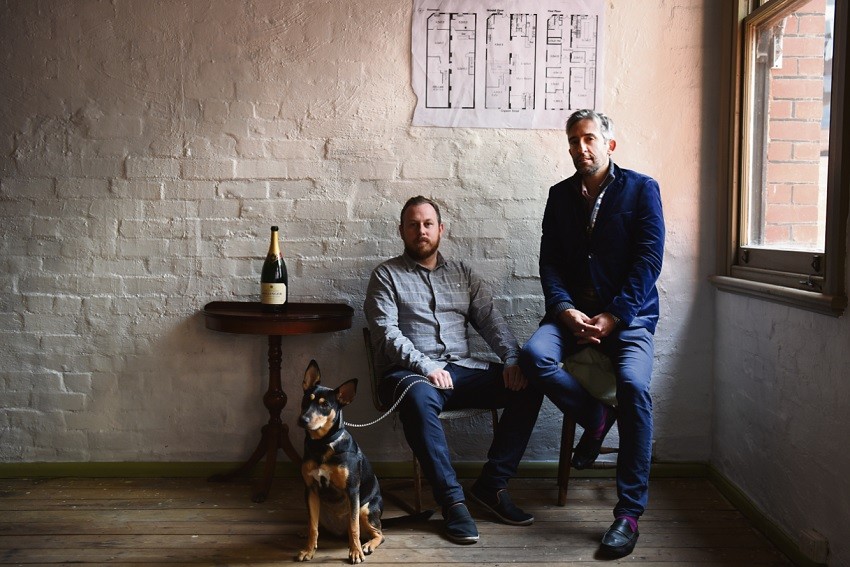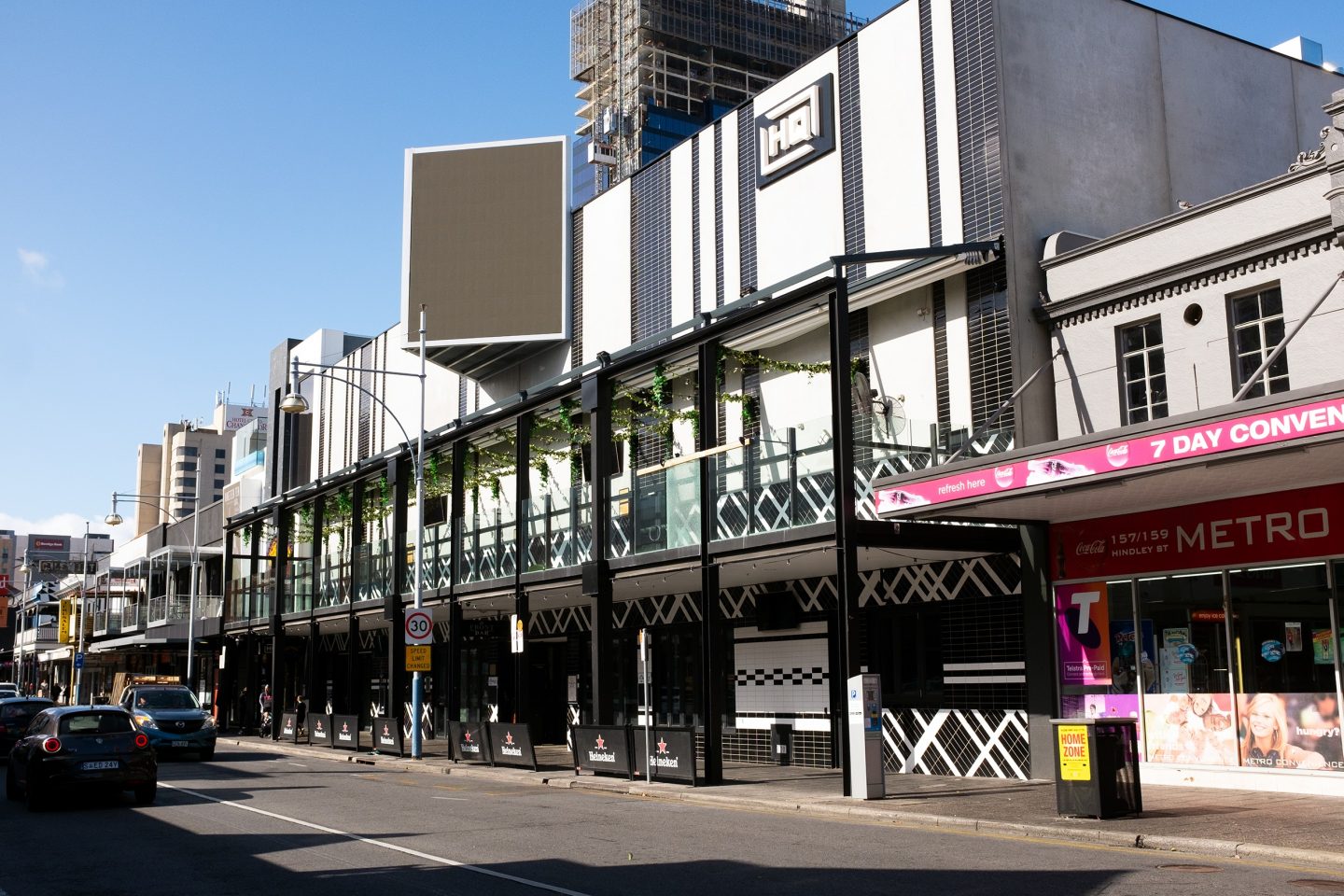
Walter Marsh
Walter is a writer and editor living on Kaurna Country.

Ten years after the launch of its first activation on Hindley Street, Renew Adelaide is no longer the new kid on the under-occupied city block.
“Adelaide at that point was pretty grim – I was 28, 29, and pretty much everyone I knew had moved interstate,” Renew Adelaide co-founder Ianto Ware tells The Adelaide Review. “For a few years the only small music venue had been The Jade Monkey – there was this real sense of a lack of space.”
A DIY musician and zine-maker with a PhD in cultural studies, Ware’s involvement with the artist-run Format Collective offered a glimpse of the possibilities that giving artists and community groups the keys to vacant city spaces could unlock. “Format was given a space on Hindley Street next door to where The Reading Room was for two weeks during Fringe. We came out of that with this sense that if you could get the space, a lot of other things just happened. [That] was the biggest barrier to things occurring.”
Borrowing Renew Newcastle’s model of rolling, 30-day rent-free ‘licences’, Ware and his early co-conspirators started a not-for-profit that would make strange bedfellows out of “property people, lawyers, 19-year-old artists and senior advisors to the Premier, all in one room”. “There was probably 6-12 months where it was a handful of us with no property or legal backgrounds running around,” he says, “[but] we managed to figure out how we could reconcile these lofty ideals with getting people on the board who could get us in front of property owners, or find funding.”

“We came out of that with this sense that if you could get the space, a lot of other things just happened.”
Ianto Ware
In June 2010 The Reading Room opened on Hindley Street, along with experimental fashion space Workshop. A third place-style “loungeroom in the city”, it was a defiantly non-commercial project that could never happen under a conventional lease.
“The Reading Room wasn’t really a shop; it held events but it wasn’t an event venue,” current Renew Adelaide CEO Tim Boundy explains. “To class it as either would have been cost-prohibitive – so how do we create new classes of venues to actually make it easier to use our city?”
A lot can happen in a decade, especially one bookended by a financial crisis and a pandemic. The building that once housed The Reading Room was flattened to make way for the new HQ Complex which in a sad, poetic twist now sits vacant again. Ware himself eventually moved to Sydney, but his successor Lily Jacobs helped make Renew Adelaide a part of the city’s fabric.
“I think there has been an evolution over those 10 years,” Boundy says. “The Renew model is really a response to what challenges a city is facing. It’s a city-led response. We don’t stipulate or demand, we open up the city for people to use it in the way they think is best, and give them a platform to do something they think responds to that challenge.”
Perhaps more importantly, it has helped encourage government and the property sector to be more flexible and adaptable in how the city is used, with initiatives from the Small Venue Licence to Splash Adelaide sharing many of the same values. “That mentality [across] all governments in the last 10 years is one of those legacies,” Boundy says
There have been criticisms and setbacks along the way, from a short-lived Port Adelaide expansion to the time a city councillor likened the program to “a cancer”. To date Renew has supported 192 projects across 134 sites, from retail start-ups and hole-in-wall bars to more esoteric ventures like a flight simulator, board game café, and arthouse film society.

Some, like Port Adelaide’s Low and Slow American BBQ, are now well-established, but many more have faded into memory. Just 62 Renew projects have ‘graduated’ to more conventional leasing arrangements at the conclusion of their rolling licences – who could forget the much-hyped opening, and abrupt closure of fine dining restaurant The Henry Austin on Chesser St?
“One of the criticisms I’ve heard of Renew is that places open, and then they close – but I actually see that as part of its success,” Boundy says.
“The other option is that they don’t open at all, so nothing happens, or they take up a five-year commercial lease which becomes a bit of a handbrake if their first idea doesn’t go so well,” he says, citing the operators of short-lived wine bar Red Trousers, who went on to run NOLA and The Stag Public House after taking their first steps through Renew.
“One of the criticisms I’ve heard of Renew is that places open, and then they close – but I actually see that as part of its success.”
Renew Adelaide CEO Tim Boundy
“Those opportunities are really important in Adelaide, to give people a space to fail, permission to fail, and that’s okay.”
Even before the pandemic, the collapse of several major retail chains has left the city with a fresh abundance of vacant spaces. Meanwhile, the social and economic upheaval of COVID-19 sets the stage for a new wave of potential Renew participants with time on their hands and untested ideas to set loose on the city. 10 years later, the organisation finds itself with a renewed purpose – and a new set of challenges.

“I think the purpose of Renew was trying to set up an organisation that would outlast the problem we were dealing with in 2009, and the people who were running it at that point,” Ware reflects. “Looking back at it now, it’s really fulfilling to have been at the start of something… but know that it doesn’t need you anymore.”
Author’s note: In the interests of disclosure, I was once part of a local ‘sad song choir’ which performed at The Reading Room – twice.

Walter is a writer and editor living on Kaurna Country.